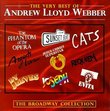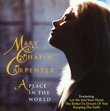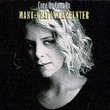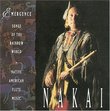| All Artists: Mimi & Richard Farina Title: Pack Up Your Sorrow: Best Of The Vanguard Years Members Wishing: 2 Total Copies: 0 Label: Vanguard Records Original Release Date: 9/28/1999 Release Date: 9/28/1999 Genres: Folk, Pop, Rock, Classic Rock Styles: Traditional Folk, Singer-Songwriters, Folk Rock, Psychedelic Rock Number of Discs: 1 SwapaCD Credits: 1 UPCs: 015707953825, 0090204871445, 090204871445 |
Search - Mimi & Richard Farina :: Pack Up Your Sorrow: Best Of The Vanguard Years
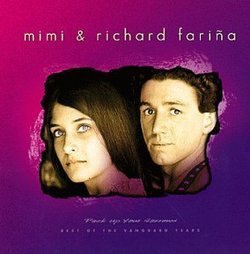 | Mimi & Richard Farina Pack Up Your Sorrow: Best Of The Vanguard Years Genres: Folk, Pop, Rock, Classic Rock
One who listens to the music of Richard and Mimi Farina also hears legend and tragedy chiming out like the Autoharp and dulcimer dominating their sound. By the time of the motorcycle accident which took his life at age 30,... more » |
Larger Image |
CD DetailsSynopsis
Amazon.com One who listens to the music of Richard and Mimi Farina also hears legend and tragedy chiming out like the Autoharp and dulcimer dominating their sound. By the time of the motorcycle accident which took his life at age 30, Richard Farina had run guns for the IRA, participated in the Cuban Revolution, bummed about Greenwich Village coffeehouses, recorded with Bob Dylan, appeared at Newport Folk Festivals, befriended Thomas Pynchon, and, under the influence of Pynchon and Jack Kerouac, wrote a frenetic novel, Been Down So Long It Looks Up To Me. His marriage to Mimi Baez (Joan's sister) brought the singer's spectral soprano and pealing autoharp to his original songs of bohemian wit and wonder--compositions such as "Pack Up Your Sorrows," "Reno Nevada," and "Another Country," all underappreciated classics of 1960s wanderlust. This set concisely distills Richard and Mimi's most consistent work for Vanguard, part neo-Appalachian folk stylization, part venturous, Byrds-like folk-rock. --Roy Kasten Similarly Requested CDs
|
CD ReviewsREFLECTING ON A GREAT LOSS Michael D. Zungolo | Philadelphia, PA USA | 12/01/1999 (5 out of 5 stars) "Like Buddy Holly and Janis Joplin, Richard Farina died young and unexpectedly, and listening to this lovely music makes one sadly wonder how much he had left to contribute (the same goes for Mimi, who has almost completely retired from music since his death). Farina was a genuine folk poet with a somewhat fragile singing voice that blended beautifully with that of his wife, Mimi Farina (nee Baez). But it was the musical settings--the dulcimer and autoharp arrangements--that made the Farinas' music stand out. While most folkies of the era were content to strum an acoustic guitar, Richard and Mimi wove complex acoustic tapestries over their ethereal voices and haunting songs, taking scraps of Appalachia, the Middle East and the British Isles to form a cohesive, totally unique musical vision. Folk music doesn't get any more mysterious, or beautiful, than this." Under 30 & wondering whether? Go man go girl go! Immerse.. Michael D. Zungolo | 10/07/1999 (5 out of 5 stars) "your lucky selves in the warmth wit wildness & wonder of the great Farina(s). Richard positively rules any hip 'Who's Who?' guide to the second half of this century (he is the dedicatee of college chum T. Pynchon's GRAVITY'S RAINBOW! for starters)... Genus: Genius; Specialties: legend- & character-creating, festivity-indulging, yarn-spinning, dulcimer strumming, songwriting & harmony singing, with his soulmate Mimi the Dancer's magically-suited interweaving. I know these songs like the back of my hand, their rich depth and unique harmonies have accompanied me through decades, and they hold up swell. This comp. is great! Remastered sound: superb; choice & order: well-considered; liner notes: top notch (justified hyperbole)! Angels evidently smiled on this project..." A Rediscovered Masterpiece 01/30/2000 (4 out of 5 stars) "Mimi and Richard Farina's work is probably the most underappreciated music to come out of the 1960's. The Best of the Vanguard years offers a sampling of the beauty, poetry and power that is their music. Though in some ways comparable to the many folk acts of the time, notably Bob Dylan, Richard and Mimi Farina's brand of folk is fresh and unique, even today. The arrangements, vocalizations and the Irish and Cuban influences blend together to make an almost hypnotic sound that is haunting, forceful and peaceful at the same time. The instrumentation is beautiful, the lyrics intelligent and witty, and the end result is a captivating collection of songs that will hopefully bring attention to these too-long-overlooked artists."
|

 Track Listings (22) - Disc #1
Track Listings (22) - Disc #1